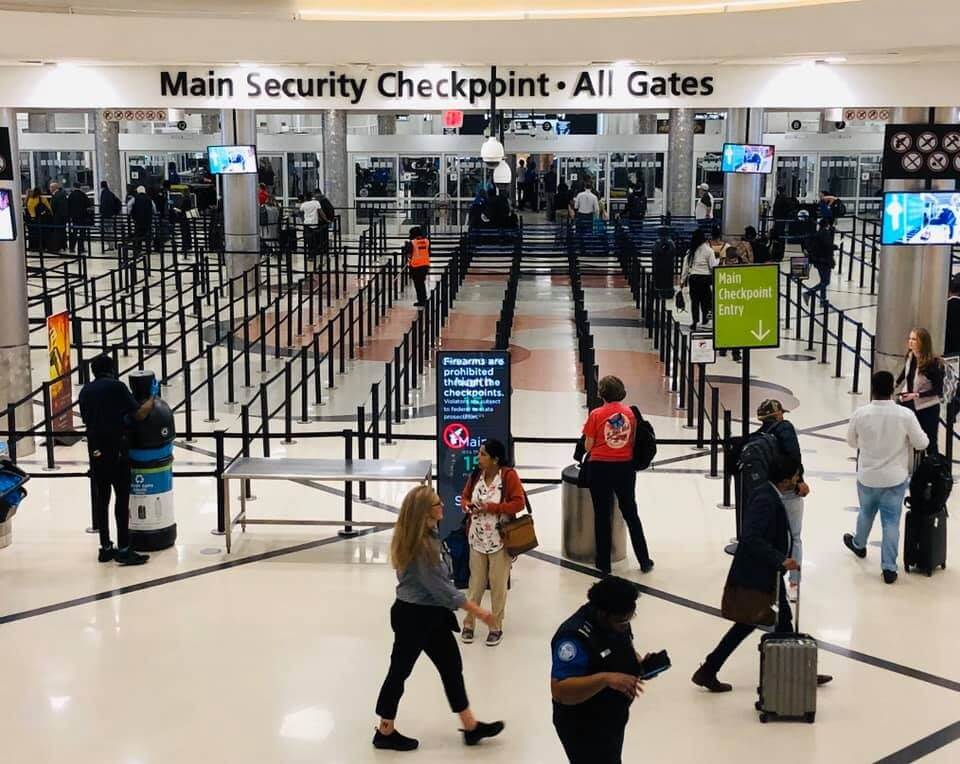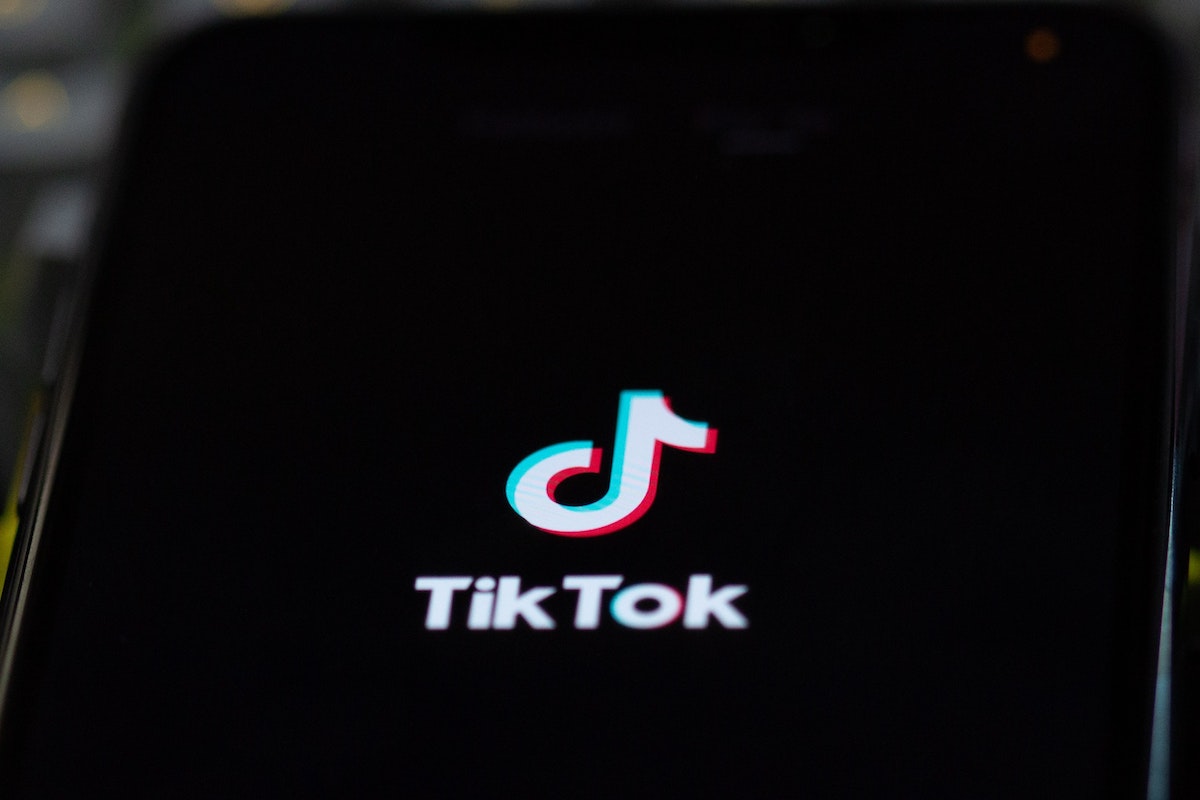
When her job at a Macon daycare cut her hours from 40 to 10 in March, Kalie Mitchum put off applying for unemployment in the hopes that things would soon turn around.
Nearly half a year has passed. On this Labor Day, Mitchum, like workers around the state, is still struggling to make ends meet in an economy ravaged by COVID-19.
“I literally want to cry all the time,” she said. “I feel like my relationship is on its last thread because of my stress, and bills are overdue. And I hate not having Pull-Ups money for my daughter and not being able to do what I could do and just being happy like how I was before this crap.”
Georgia began 2020 with a strong labor market. The state’s unemployment rate in January was the lowest on record at 3.1%, and the number of Georgians looking for work was the lowest since 2001.
But everything changed in March as Georgia doctors began seeing their first cases of COVID-19.
Gov. Brian Kemp ordered public school buildings closed March 6 and issued the state’s first-ever public health emergency March 14, when the number of confirmed COVID-19 cases in Georgia surged to 64.
The governor initially resisted closing businesses, saying that was a decision better left to local communities. He would eventually relent, shutting down bars and nightclubs March 24 and ordering Georgians to shelter at home starting in early April, when the state’s death toll was about 200.
Kemp began to lift restrictions on businesses April 24, earlier than most other states, causing even President Donald Trump, a Kemp supporter, to publicly criticize the governor.
But the health restrictions were driving business owners to bankruptcy, Kemp said.
“I don’t give a damn about politics right now,” he told reporters at an April press conference. “We’re talking about someone who has put their whole life into building a business that has people that they love and work with every single day working in many of these places that are at home going broke, worried about whether they can feed their children, make the mortgage payment.”
Trying to cope
Before the pandemic, Renell Palmer of Sylvania was the sole employee of his house cleaning operation, Palmer’s Cleaning. He went into business on his own after he was furloughed from a job at a poultry plant in January. He had a list of steady clients, and sometimes he would bring in his son to help out when things got busy.
In March, his customers began calling to cancel his services. Now, he’s down to two regular customers.
“In the beginning of the pandemic, I was doing OK, we were making it,” he said. “After a couple months, that’s when my family and I started to really feel it. There was no extra money. Now we are put out for the moment until we can make a payment of half of what we owe. And we got our main car repoed. Things slowly fell apart.”
All of the money Palmer makes goes to his landlord, who he said locked the family out of their home until they can pay what they owe.
Palmer applied for regular unemployment in March or April, he said. In July, a representative from the Georgia Department of Labor told him to reapply for Pandemic Unemployment Assistance. He did, but he hasn’t heard back yet, despite numerous calls and emails.
“I’m angry, frustrated. It’s like no one is helping. I’ve never seen a place function like this. It’s exhausting. I want to get my money to get my stuff out the house or pay him up so we can move back in. I am the breadwinner, and my family depends on me.”
Palmer and his wife and two children are temporarily staying with his mother until they can settle things with the landlord or he finds another job.
Mitchum, the former daycare worker, has a new job as a meat processor. She’s grateful to be getting a paycheck again, but life is still far from normal.
She’s two months behind on rent, her phone has been cut off three times, and her power company could be switching off her lights this week because of a $240 past-due balance.
Her unemployment claim was denied last month because her employer did not pay unemployment insurance taxes, she said.
“My heart dropped. I have worked since I was 16 years old, paying taxes and all, and for me to be denied because the employer I worked for didn’t pay into unemployment like normal, other businesses do, it pisses me off,” she said. “I appealed it, and that’s all I can do is wait and pray, but it’s killing me inside.”
Mitchum’s landlord has already evicted four other tenants, and she also has to worry about keeping her phone bill paid in case work calls as well as keeping up with her 4-year-old daughter’s digital pre-K classes.
Putting on a brave face for her daughter is often the hardest part.
“She comes to me and says, ‘It’s OK mama, I love you.’ So when I don’t think she understands, she really does, and she truly is so kind. When I feel the world falling all around me, she literally can say one nice thing and it makes me cry so bad. I hate when she asks to go do things like we used to go do and I can’t because I have to worry about eating and having a place to sleep and call ours.”
The numbers
Georgia’s unemployment rate was 7.6% in July, representing over 400,000 out of work Georgians. At the peak of the jobless crisis in April, nearly 600,000 Georgians were off the job, according to data from the Georgia Department of Labor.
Georgia’s travel and hospitality industry suffered worse than most as people across the country heeding stay-home orders didn’t use Atlanta’s Hartsfield-Jackson Airport, didn’t stay at Georgia hotels and couldn’t dine at restaurants ordered to close.
But those numbers count only those who are out of work and actively seeking a new job, leaving out those who have put their job search on pause.
Some have exited the labor market because of the difficulty of finding childcare during the pandemic. Others may simply have given up hope.
“The unemployment rate shows those who are actively seeking work right now,” said Ray Khalfani, a research associate at the Georgia Budget and Policy Institute. “It doesn’t capture those who have given up, and what typically happens in recessions is that labor force participation rate, which covers those who are still not working and actively seeking work tends to go down.”
Georgia’s labor force participation rate dropped to its lowest point on record in April, from 62.4% to 59.1%, representing about 165,000 Georgians who stopped working or looking for work. The rate began climbing back up in June, reaching 60.1% in July, the latest month for which data is available.
Also not counted in the unemployment rate are the underemployed, those who have been forced to take jobs with lower pay or fewer hours than the one they lost.
According to data from the U.S. Bureau of Labor Statistics, the number of Georgians who want to work full time but have to work less than 35 hours a week spiked in the second quarter of this year to more than 190,000, up from under 120,000 at the start of the year. At the tail end of the Great Recession, almost 300,000 Georgians were underemployed.
Being stuck in a low-paying part-time job means less money now and it can also affect a worker’s future earning potential, Khalfani said.
“Typically, underemployed workers, they’re in new lower wage jobs that have a lot more volatility as far as work hours, and this can create all types of issues as far as being able to not only get consistent hours, but also in continuing to build your skill set as they look to go up the ladder,” he said.
The unemployment rate can also disguise disproportionate effects on minority communities, Khalfani said.
The unemployment rate for white Georgians grew 4% to 7.5% between the first and second quarters of 2020, according to data from the Economic Policy Institute. Unemployment for Black Georgians grew by 6.5% to 11.8% during the same time frame. Hispanic unemployment in Georgia shot up 9.1% to 12.4%.
“When we talk about unemployment overall and we don’t talk about it in segments, as far as Black unemployment rate, the white unemployment rate, Hispanic unemployment rate, the Asian unemployment rate, by not talking about these types of metrics in these terms, breaking them down across ethnicity, we miss the gaps that are there, the differences that are often very, very stark differences,” Khalfani said.
Though workers’ struggles are real, Georgia’s unemployment rate is, on average, better than the rest of the country, said Laura A. Wheeler, associate director of the Center for State and Local Finance at Georgia State University.
“It may not seem so to some individuals, I absolutely understand that, but we are doing better than we were in the spring,” she said. “Our unemployment numbers have come down significantly. As of July, the unemployment rate in Georgia was 7.6%. And that’s below the national average of 10.2% for July. New York, Massachusetts are 10, 11%. So we are doing better in that regard. It certainly doesn’t mean that we don’t have a ways to go, and it certainly doesn’t mean that people aren’t still struggling.”
The initial wave of layoffs came to businesses that rely on face-to-face interactions or crowded spaces, such as retail, restaurants and travel. Those businesses are starting to bring workers back, albeit not at the same staffing levels they were at before, Wheeler said.
At the same time, other businesses that have so far been spared from layoffs are beginning to let people go.
“Places that may have initially kept their workers on, perhaps as a result of the Payroll Protection Program, are now having to come to terms with laying off some of their workers as they restructure to go through a different period in the future. So while you have some workers coming back on, you’ve got another set of workers who may be going off.”
Delta Air Lines, for example, plans to furlough 2,000 pilots after not enough of them took voluntary buyouts to satisfy the company’s cost cutting. More than 17,000 of Delta’s workers took the voluntary buyouts ahead of the looming Oct. 1 deadline, trimming its workforce by 20%.
Government response
During a typical recession, the state labor department’s career centers would be crowded with people seeking benefits and job training, but those doors have been shut since March, when the pandemic forced operations online.
From late March through the end of September, the state labor department has processed nearly 3.6 million regular unemployment claims, more than in the last eight years combined, paying out more than $3 billion in benefits.
As part of the federal CARES Act, Georgia has implemented a program to pay residents who normally would not have been eligible for unemployment benefits, such as gig workers and independent contractors. The department has validated over 330,000 claims under that program, which is called Pandemic Unemployment Assistance.
Some out-of-work Georgians could soon benefit from a new federal program, Lost Wages Assistance, which is set to distribute an additional $300 per week to people who are already receiving state benefits.
The program is intended to replace a previous $600 weekly payment that expired at the end of July.
The department is in the testing phase of implementing the program and anticipates payments to begin by mid-September.
It is now limited to an initial five-week period, so qualified displaced workers could get money retroactively applied for the weeks ending on Aug.1 through Aug. 29.
As of Sept. 1, the state’s unemployment insurance trust fund balance to pay unemployment benefits dwindled to about $47 million, down 98% from more than $2.5 billion in March.
This month, the federal government approved a $585 million loan to allow the state to continue paying benefits to unemployed workers after the trust fund runs out of money. The loan is the second of three monthly installments first approved last month as part of a total package totaling $1.1 billion.







